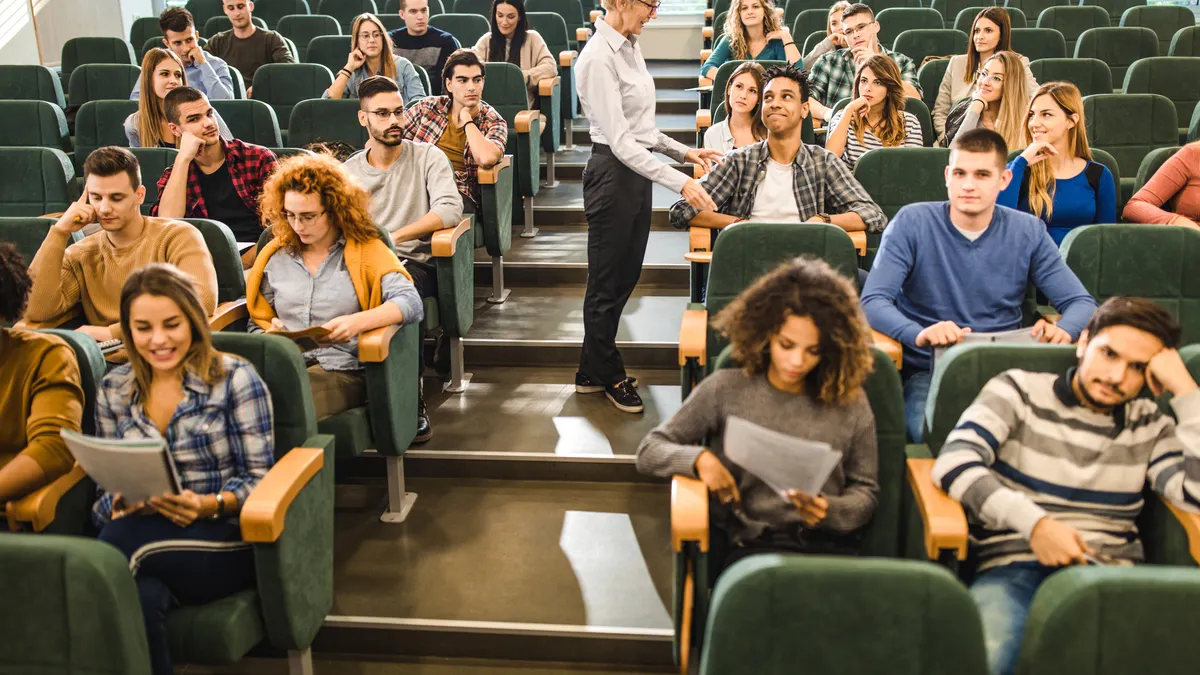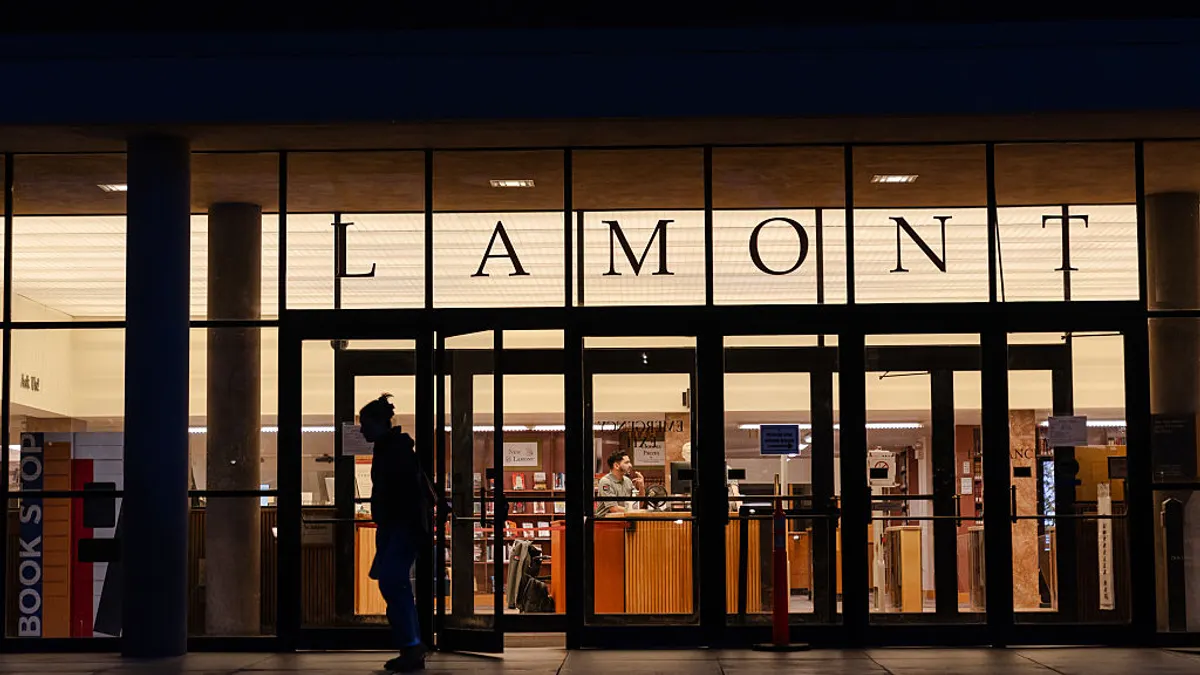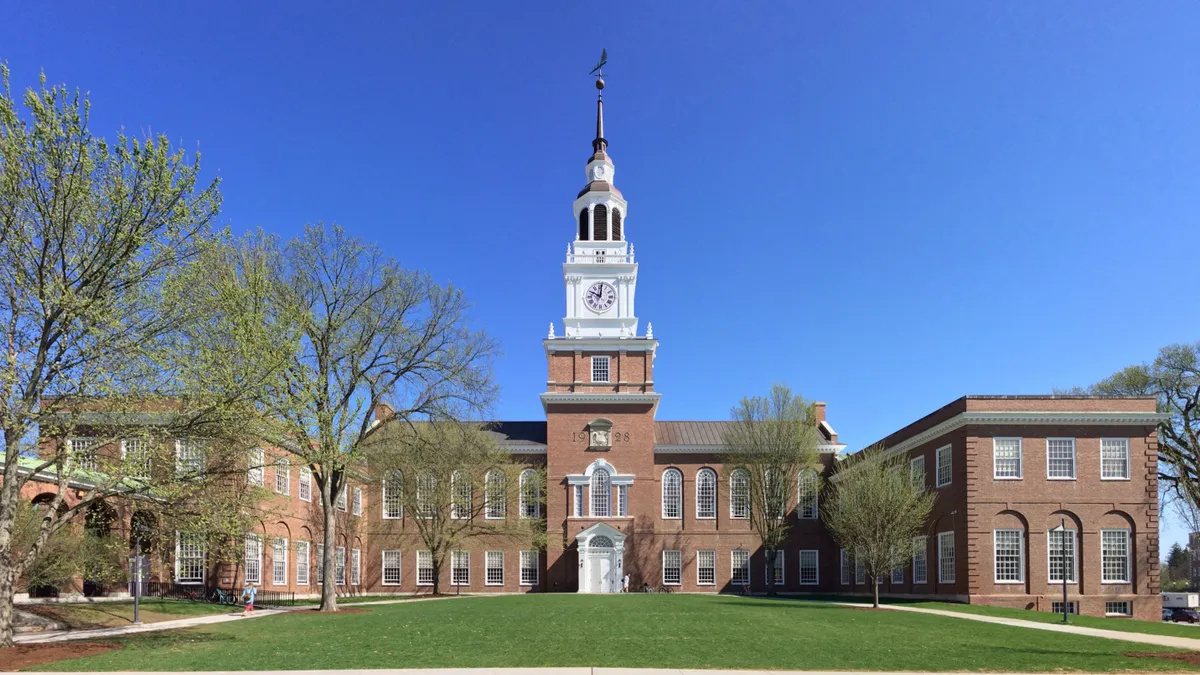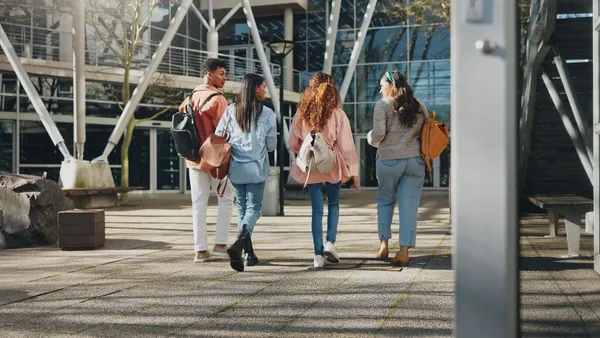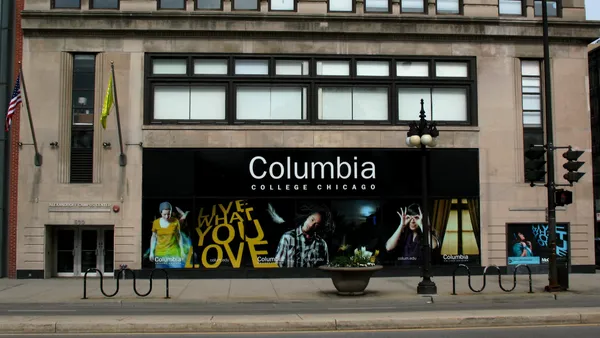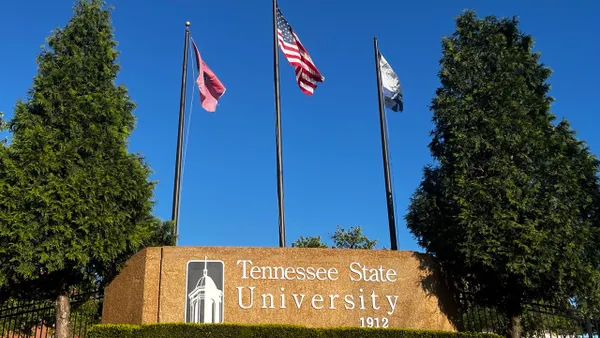Dive Brief:
- The share of low-income students and those of color admitted to selective colleges would drop precipitously if these institutions formed their classes through a lottery system, a new study finds.
- The authors of the report, published Wednesday in the peer-reviewed journal Educational Researcher, simulated lottery admissions at highly and moderately selective colleges using U.S. Department of Education data. They found in multiple scenarios that far fewer Black, Latinx and low-income students would be admitted than are today.
- Conducting lottery draws for individual student groups, which could potentially ameliorate some of these problems, would likely not be possible because of the legal limit on racial quotas in admissions, the researchers note.
Dive Insight:
Barriers that prevent underrepresented students from reaching college have come under new scrutiny in recent years as the U.S. undergoes a racial reckoning. College admissions practices have emerged as a major part of this debate amid scandals such as the Varsity Blues bribery cases and lawsuits in which opponents of affirmative action attempt to topple race-conscious policies.
Observers have homed in on lottery admissions as a potential fix for equity issues. By this method, colleges would randomly select their classes from a pool of students. Lottery systems are often envisioned with applicants having to meet a minimum GPA or standardized test score requirement.
But the new research, conducted by Dominique Baker, an education policy professor at Southern Methodist University, and Michael Bastedo, an education professor and associate dean at the University of Michigan, challenges whether lottery-style admissions would improve campus diversity.
They drew on two data sets from the Education Department that tracked high school students to simulate how they would be admitted to moderately and highly selective institutions in a lottery. Criteria developed by Barron's magazine determined selectivity.
The researchers constructed multiple scenarios in which the lottery systems also had GPA or test score requirements, or both. In these circumstances, the share of admitted Black and Latinx students and those from low-income backgrounds would plummet. In one model, the share of Black students in an entering class dropped to 1%.
Using a minimum GPA requirement, the share of male admits would also drop significantly, they found.
"We do not seek to dismiss lotteries out of hand, only to provide evidence on the types of parameters and considerations that must be taken into consideration when seriously considering their implementation," they wrote.
The study's results may disappoint some in the higher ed world, as pundits from across the political spectrum have backed a lottery system.
Rick Hess, director of education policy studies at the American Enterprise Institute, a right-leaning think tank, called for lottery policies in an essay last year in Forbes. Hess wrote that the turmoil of the pandemic had upended admissions conventions, giving colleges a chance to test whether their current enrollment systems work as intended.
And in 2019, left-aligned think tank New America proposed lottery-based admissions as a requirement for highly selective institutions to access Title IV aid and federal research money.
"This is, no doubt, a radical proposal, but if the federal government is a primary payer for many of these institutions, it has a stake in ensuring elite colleges and universities increase social mobility, rather than reify existing inequities," New America wrote in a report recommending ways to help students of color in higher ed.
The conversation around equity in admissions was also renewed recently after Amherst College, a top-ranked liberal arts school in Massachusetts, did away with legacy admits last month. In making the decision, the college cited its desire to increase the number of underrepresented students on campus.



